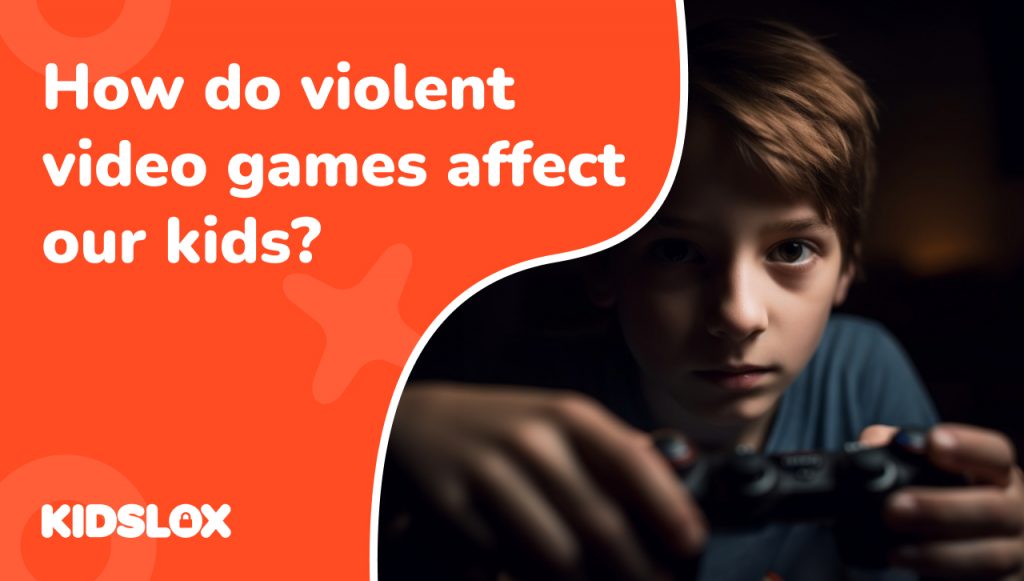Unpicking the debate surrounding gaming, aggression and violent behavior
The relationship between video games and violence has been a hotly debated topic for decades. While some argue that playing violent video games can lead to aggressive behaviour in players, others contend that such claims are unfounded. In this Guide To, we delve into this divisive issue and look at the strategies you can use to keep gaming a positive experience for you – and for your kids.
From action-packed shootouts to fantasy battles, video games often depict a wide range of violent scenarios. Popular violent games include Call of Duty, Mortal Kombat, and Grand Theft Auto. All of which depict fighting, weapons, crime, bad language and killing.
You might have heard the term ‘Gamer Rage’ -but is it a real thing? According to research by Time2Play.com, there are certain game franchises that make players even more likely to exhibit aggressive and violent reactions. After surveying over 1,000 regular gamers, Call of Duty came out on top as the game that angers them the most. But feeling angry doesn’t automatically equate to behaving violently.
Ever since arcade gaming was introduced in the 1970s, concerns have been raised about the potential influence of violent content on players’ behaviour. Now, over 50 years on, what does the evidence say about the link between gaming and violence? Let’s explore.
10 reasons video games are said to cause violence
1. Desensitization to Violence: Many argue that regular exposure to violent content in video games can desensitize players to real-life acts of violence, normalizing the behaviour and reducing empathy for those around them.
2. Imitation of Behavior: For teens who spend many hours playing violent games at the expense of real life interactions and experiences, it’s argued that the characters within the games may serve as negative role models for players.
3. Rewarding Aggressive Behavior: Many video games reward players for engaging in violent actions, potentially reinforcing the notion that aggression is an effective means of achieving goals and solving problems.
4. Increased Arousal and Aggression: The fast-paced and intense nature of some video games can lead to heightened arousal and aggressive tendencies in players, particularly during competitive gameplay or when facing challenging opponents.
5. Negative Impact on Social Skills: Excessive gaming, especially of violent games and franchises, can lead to social isolation and withdrawal from real-life social interactions.
6. Distorted Perception of Reality: Video games often present a distorted and exaggerated portrayal of violence, blurring the line between fantasy and reality for some players. There have also been reports that excessive gaming can lead to distorted vision and in extreme cases, hallucinations.
7. Catharsis Theory: While some argue that playing violent video games provides a cathartic release for pent-up aggression, others suggest that it may actually perpetuate and escalate aggressive tendencies by providing an outlet for aggressive impulses.
8. Desire for Power and Control: Many violent video games place players in roles where they have power and control over others, reinforcing feelings of dominance and superiority that may translate into real-life interactions.
9. Lack of Consequences: In many video games, players can engage in violent actions without facing real-life consequences, leading to a disconnect between virtual and real-world morality and ethics.
10. Vulnerability of Children: Children and adolescents, in particular, may be more susceptible to the influence of violent video games due to their developing brains and impressionable nature, potentially leading to long-term effects on behavior and attitudes towards violence.
Does research prove that video games cause violent behavior?
If you thought Google might answer this question, you’ll be disappointed! A simple search throws up hundreds of studies and no definitive answer on the topic. And, while the American Psychological Association acknowledges that while there is a well-established association between violent video games and aggressive behaviors, they caution against attributing acts of violence solely to video gaming, stating that such attribution “is not scientifically sound.”
A recent reanalysis of data collected from over 21,000 young individuals worldwide challenges the notion that video games precipitate violence or aggression. Led by Aaron Drummond from Massey University in New Zealand, researchers revisited 28 previous studies utilizing meta-analysis to investigate the correlation between aggressive behavior and video gaming.
The result? Non-conclusive. The research revealed a very small positive correlation between gaming and aggression, but below the threshold used to determine a ‘small effect’.
Can gaming be good for you? Exploring the positive effects of video games
“The defining entertainment’ medium of our time” is how The Guardian’s Pete Etchells describes gaming. Etchells calls out poor research methodologies and decades of viewing gaming through the lens of scepticism that has given the pastime a bad name.
So, if the research into violence and gaming is shaky at best, can playing video games actually be good for us? Many argue that gaming should be encouraged as it helps to promote executive functioning capacity, including memory and problem solving.
A healthy habit? Ten positive effects of gaming
1. Cognitive Benefits: Video games can improve cognitive abilities such as problem-solving skills, spatial awareness, and memory retention. In fact, some studies have shown that video games can provide cognitive training to children, potentially improving working memory, response inhibition, and other cognitive functions.
2. Multitasking Skills: Many video games require players to simultaneously manage multiple tasks at once, which has been shown to help develop skills related to skill and accuracy too.
3. Hand-Eye Coordination: Games often require precise hand-eye coordination, which can improve motor skills and reaction times.
4. Social Interaction: Far from the socially isolating experience that video games are so often claimed to be, many multiplayer games provide opportunities for social interaction and teamwork, fostering communication and collaboration skills.
5. Stress Relief: Playing video games can serve as a form of stress relief and relaxation, helping players unwind after a long day.
6. Creativity: Some video games, including Minecraft encourage creativity and imagination through building, designing, or customization features.
7. Persistence and Resilience: Overcoming challenges and obstacles in video games can build resilience and persistence in players, teaching them the value of perseverance.
8. Opportunities: Many educational video games are designed to teach specific skills or concepts, offering a fun and engaging way to learn.
9. Problem-Solving Skills: Video games often present complex puzzles and challenges that require creative problem-solving strategies to overcome.
10. Community Building: Video game communities provide a sense of belonging and connection for players with shared interests, fostering friendships and camaraderie. This can be especially positive for children who struggle with typical socialising.
Kids and gaming, should parents be concerned?
Gaming is ubiquitous in modern childhood. According to the website, USwitch, 9 in 10 young people between the ages of 3 and 15 play some form of digital game every day. That’s a lot of gaming!
When approached with appropriate boundaries, gaming can offer a positive experience, serving as a beneficial outlet for children and young people to learn new skills, get creative, make friends and relax. Gaming allows kids to:
- Decompress after school or work
- Take a break from the demands of everyday life and immerse themselves in a different world temporarily.
- Socialize and connect with friends, as well as make new acquaintances.
- Build social connections based on shared interests, which can be more enjoyable and accessible than traditional conversation.
- Discover a supportive community of individuals facing similar challenges or experiences.
- Experience a sense of accomplishment and acquire new skills through gameplay.
As parents, we understand our children better than anyone. If your child loves video games, you may be concerned about the impact they’re having on their behavior – especially if you’ve noticed them acting out of character, becoming withdrawn or even aggressive.
You may have heard the term ‘gamer rage’, describing aggressive outburst after playing violent video games. If you have witnessed this behavior with your own child and are having concerns about their potential negative impact on your child’s life, try these simple strategies to gently bring their attention to the issue.
- Let them know that the behavior is unacceptable, explain clear consequences and be prepared to reinforce them whenever the aggression is displayed
- Help your child understand their triggers for their behavior. Many children (and adults!) find their reactions to stress in their environment when they’re tired, hungry or under pressure.
- Understand what else is going on with your child. Bullying, struggles at school or anxieties around their health and wellbeing might provoke out of character behaviour too.
Using parental controls like Kidslox can help you to manage the amount of time your child is spending gaming, and encourage them to plan their free time in a way that supports all their hobbies and responsibilities too.




